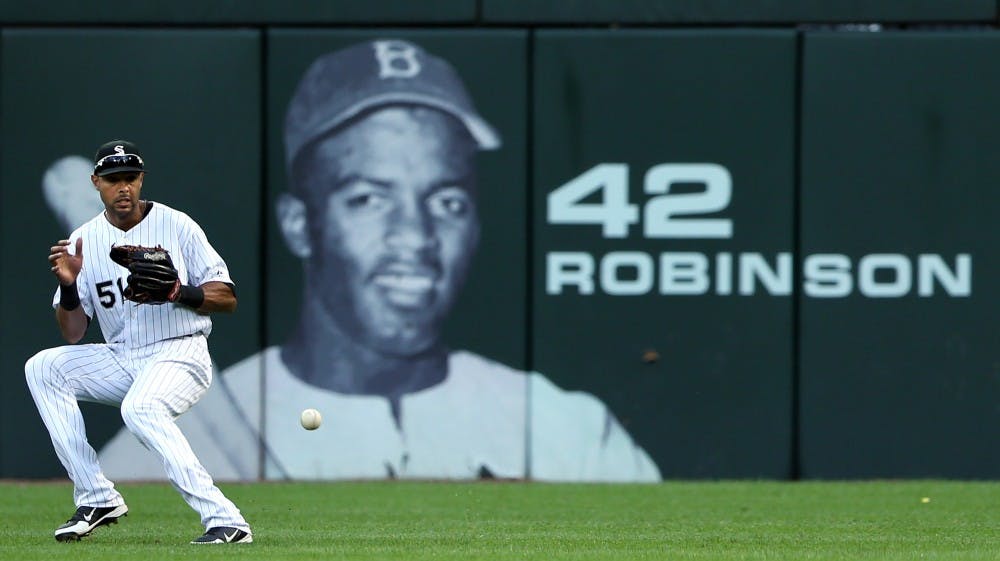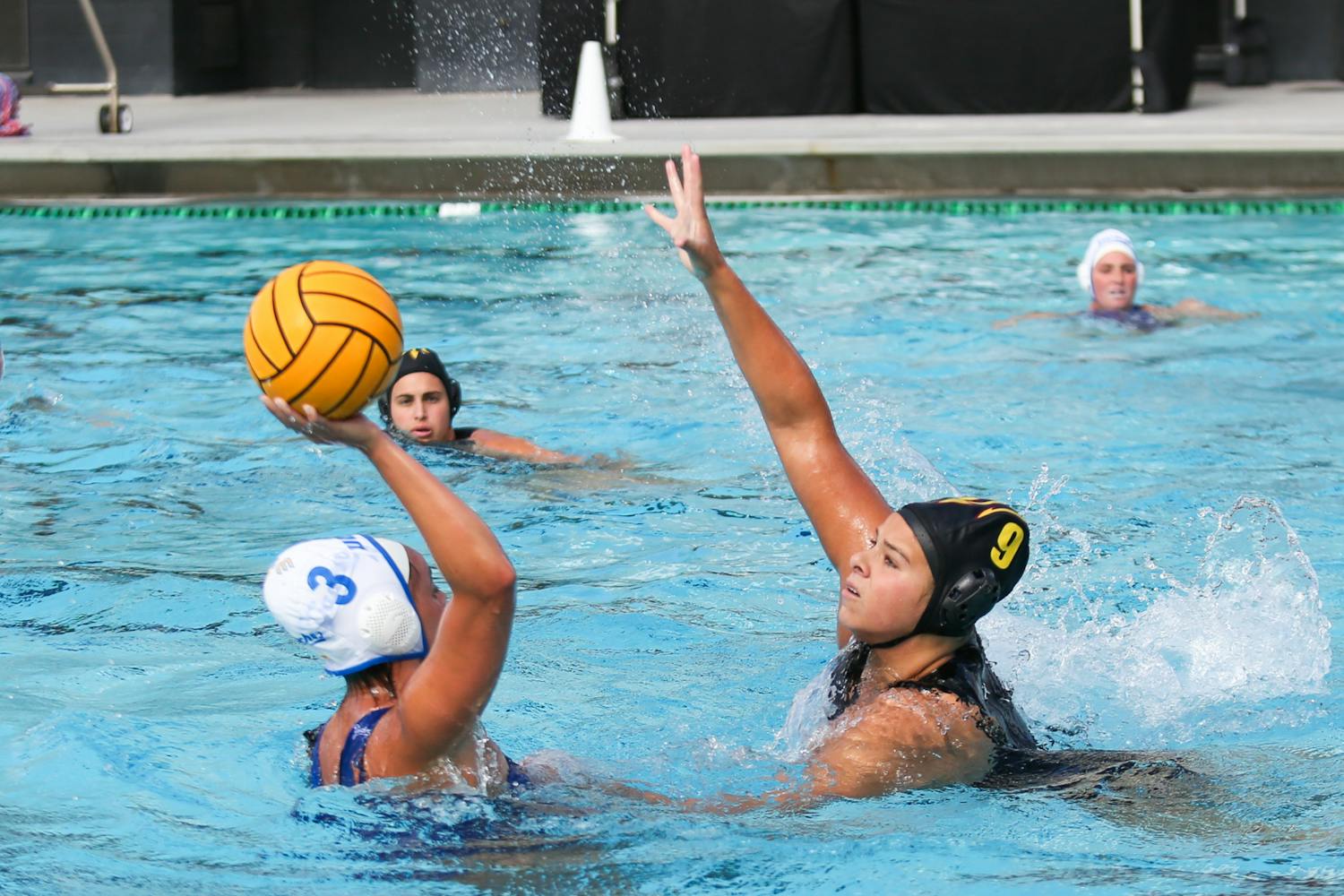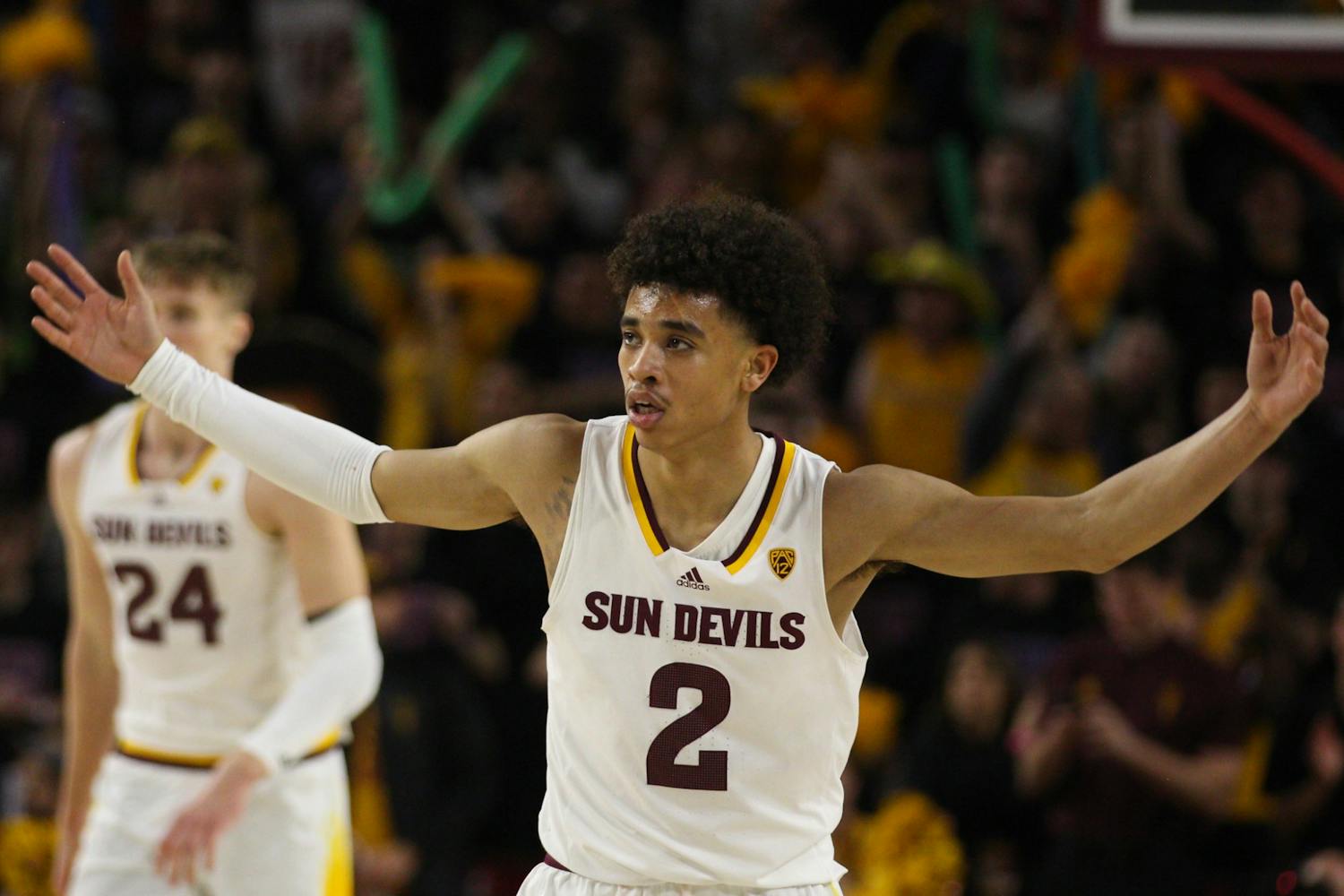 (Photo by State Press Staff)
(Photo by State Press Staff)ASU coach Todd Graham confirmed at Monday's post-practice press conference that the football team would again be using Riddell Sideline Response System technology in an effort to prevent concussions and other head injuries.
"We want to be a leader in taking care of our student athletes," Graham said. "This partnership has been very productive for us. We're on the cutting edge, and we're the only Division I school in the country doing this, and that's where we want to be. We care about what our players are doing 10, 20 or even 30 years from now."
Sensors embedded in ASU's new helmets will provide real-time head impact data and enhance a national study of head injuries in college football.
"Hopefully it will help prevent concussions and help us measure and identify when a player has been hit hard, instead of counting on a player to tell us," Graham said. "For our players, it's not an easy deal. There's a lot of testing and things that are monotonous, but nothing should come in front of the well-being of our student-athletes, and I think there will be a lot of good things coming out of this study."
Graham recalled his playing days, when concussion awareness and brain damage research was primitive at best. Riddell technology can help examine genetic information, expediting player recovery times and helping trainers and physicians to better gauge a player's initial diagnosis.
"I remember playing, and I would get stung, and the last thing I said was something to my coach," Graham said. "I just kept playing, and you almost go into autopilot."
Riddell, headquartered in Rosemont, Illinois, aims to use the data to improve helmet designs to disperse impact, most severe in head-to-head hits, aligned with TGen, a Phoenix-based non-profit that specializes in neurological research.
"I think it's neat that we're being proactive in providing the research and the data to have a (DNA) swab test or something that can better identify concussions."
Ultimately for Graham and his staff, the priority is clear.
"I don't want to put one person out there on that field that's not safe," he said.
Reach the assistant sports editor at smodrich@asu.edu or follow him on Twitter @StefanJModrich




